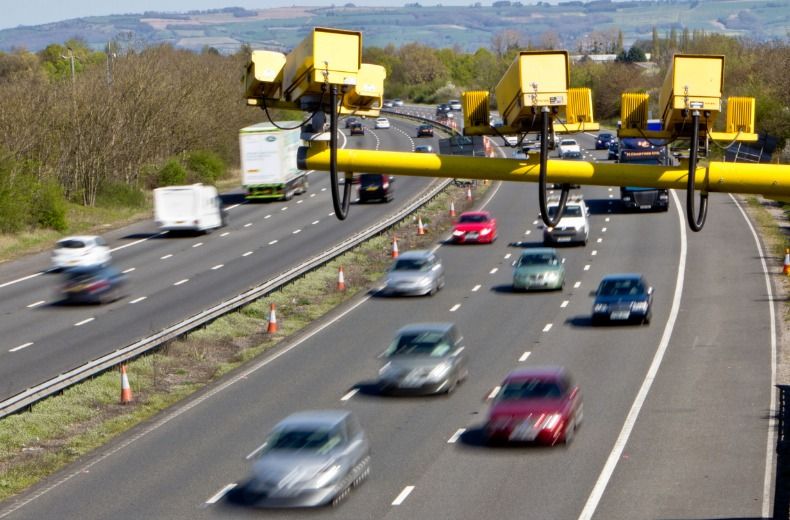Of the 2.4 million speeding cases detected in the 12 months to the end of March last year, a total of 404,335 were written off, according to analysis of government data by the RAC Foundation.
This means that 17% of all speeding offences recorded in the year 2020-21 were later cancelled, up from 13% during 2019-20.
Cases were dropped against motorists for a variety of reasons, including faulty speed cameras, delays in issuing notices of intended prosecution and a lack of resources to bring cases to court.
The report also highlights concerning levels of cars being used with cloned or false number plates. In some cases, this led to innocent motorists receiving fines for speeding offences they did not commit.
The total number of speeding offences detected in England and Wales in 2020-21 was down by only 6% on the previous 12 months, despite traffic volumes falling by more than a quarter because of coronavirus lockdowns. Most speeding offences (96%) were picked up by cameras.
If caught speeding, drivers can normally expect a £100 penalty and three penalty points on their licence unless they’re given the option to take a speed awareness course.
The RAC Foundation called on the Government do to more to address flaws in the system that are causing so many offences to be cancelled.
The organisation’s director Steve Gooding said: “It is correct that drivers caught speeding should face the consequences, but it is also important that the systems of detection and prosecution are robust.
“The hundreds of thousands of cancelled offences each year indicate they are not. At the very least it is an administrative burden the police could do without.
“We urge the Home Office to start collecting data from police forces about these cancelled offences so we can understand where the problem lies.”
- Speed cameras – how they work
- Speeding fines – how much you have to pay
- Speed limits in the UK – know the laws
In both Greater Manchester and Warwickshire, a whopping 39% of speeding cases were dismissed in 2020-21, the highest proportions in the country.
Conversely, Wiltshire – which has no fixed speed cameras – saw the lowest proportion of cancelled cases, at just 2%.
Adam Snow, a lecturer at the law school of Liverpool John Moores University, who worked on the report, said: “Police forces and local authorities are seeing number plate cloning as a growing problem.
“With the increasing reliance on camera enforcement for clean air zones and moving traffic violations, there is some evidence to suggest more motorists are seeing this as an acceptable response even though it is fraud.”

RAC sale – up to 33% off*
• Roadside cover from £5.49 a month†
• We get to most breakdowns in 60 mins or less
• Our patrols fix 4/5 breakdowns on the spot











